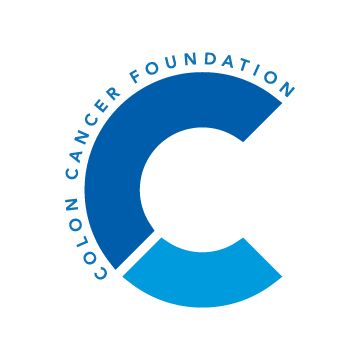
Increasing Awareness Around Early-Age Onset Colorectal Cancer

Transcript:
Kristie L. Kahl: What is the rising concern with early-age onset colorectal cancer?
Zsofia Stadler: Since the 1990’s, we’ve had guidelines for colonoscopy screening for patients over the age of 50. In fact, we have seen a slow and steady decrease in colon cancer rates in the over 50 population. What has become quite striking, is that since the 1990’s, the incidence of colon cancer in the under 50 population — this is the population that doesn’t usually get colonoscopies – has been increasing annually by 1% to 2%, which is quite a large increase. That increase is even more profound in very young patients, so ages 20-29, that increase is as much as approximately 4% annually.
Kristie L. Kahl: With that, there is a trend that these younger adults are also being diagnosed at later stages, why is that?
Zsofia Stadler: We don’t exactly know the answer to that. One hypothesis is that maybe it’s the biology, maybe some of these cancers are more aggressive. Most of the data that has been presented to date doesn’t demonstrate that these are more aggressive cancers. Later diagnosis may also be due to patients presenting at later stages because they’re not undergoing routine screening.
There’s some interesting research suggesting that the later diagnosis is due both because of the provider and the patient, presenting with the symptoms late. So, for example, it’s known that early onset colon patients wait up to a year after presenting with symptoms, until they seek medical attention. On the provider side, the average number of providers that an early onset colon cancer patient sees prior to diagnosis is three. The reason for that is often the symptoms that early onset colon cancer patients present with are rectal bleeding and oftentimes it’s dismissed as hemorrhoids, which is quite common but unfortunately, in early-onset patients, it can be a sign of colorectal cancer.
Kristie L. Kahl: What are some other signs and symptoms that young adults should be looking for, but aren’t thinking about.
Zsofia Stadler: Rectal bleeding is probably the most important one; changes in your bowel habits, either diarrhea or constipation; abdominal pain; and any of these symptoms that occur over time or are progressively getting worse, for example.
Kristie L. Kahl: What are the differences between colon cancer that occurs in you adults versus older adults?
Zsofia Stadler: We know that in younger adults, more of the colon cancer is genetic in etiology, meaning there is a genetic mutation that is predisposing an individual to colorectal cancer. The most common hereditary cause of colon cancer is Lynch Syndrome, which overall, accounts for about 3% of all colorectal cancers. But in young patients under 50 it accounts for about 10% of all colon cancer diagnoses.
Kristie L. Kahl: There have been guidelines issued, who do those guidelines apply to?
Zsofia Stadler: The American Cancer Society did a modeling study that demonstrated that perhaps we should lower the average age at which we begin colonoscopy screening from 50 to 45. In fact, in African Americans, for example, this has been a recommendation for quite a while now. These were modeling studies but it seems to suggest that we would pick up more colon cancer cases. But remember what I said before, the most dramatic increase in colon cancer in young patients is actually in the age group of 20-29. So, it’s really not necessarily targeting the group where the increased risk is at the highest or most dramatic.
Kristie L. Kahl: If we’re not screening these individuals, what are ways we can at least raise awareness so younger adults know they can be at risk?
Zsofia Stadler: One of the most important aspects of colorectal cancer is that there is often a family history of colon cancer. About 15% to 20% of colon cancer patients, there is a family history. We know that those individuals are at a higher risk of colorectal cancer. So, for example, the United States Preventative Task Force Service put out recommendations that anyone who has a first degree relative with colon cancer aged 60 or under should get colonoscopy screenings starting at age 40. I don’t think we’re always following these guidelines and patients may not be aware that colonoscopy at an earlier age is recommended for them.
In addition to colon cancer risk in the family, many families also have polyps. Polyps also increase the familial risk of colorectal cancer. So, there is a lack of knowledge in many families about how many polyps an individual had, what age they developed the polyps, and what the pathology of the polyps was, which can be very important for determining what risk of a certain patient is.
Kristie L. Kahl: Are there any other types of screening besides colonoscopy?
Zsofia Stadler: There are other types of screening, but none are as good as colonoscopy. So, there are sigmoidoscopies, but they only screen the left side of the colon, missing the entire right side. There are guaiac test that look for blood in the stool. They’re certainly better than nothing, but if someone has symptoms of rectal bleeding, our recommendation is still to get a colonoscopy.
Kristie L. Kahl: Why do we think this is occurring in younger adults?
Zsofia Stadler: We know that approximately 16% to 20% young adults under the age of 50 have a genetic predisposition, but that leaves the other 80% of colon cancers unexplained. There has been a lot of research looking at the epidemiology or factors that may be associated with the increased risk. Interestingly, although we know of many risk factors that increase average onset colorectal cancer, those factors including Western diet, obesity, diabetes, smoking, excessive alcohol consumption, don’t seem to account for the rise in early onset colon cancer. We are still very much investigating the causes of this dramatic shift. Is it the gut microbiome? Is it antibiotic use? No one really knows the answer as of yet.
Kristie L. Kahl: What is your biggest piece of advice for a young adult who is facing a colorectal cancer diagnosis?
Zsofia Stadler: They are not alone. They are not alone as patients and they are not alone in the field that is trying to study this — gastroenterologists, primary care physicians, medical oncologists, surgeons – are more and more aware of the rise in early onset colon cancer. In fact, many larger cancer centers have set up early onset colon cancer centers where these patients can go to address their unique issues with respect to social, psychological, fertility, genetics. There are resources for these patients.
Transcript edited for clarity.




